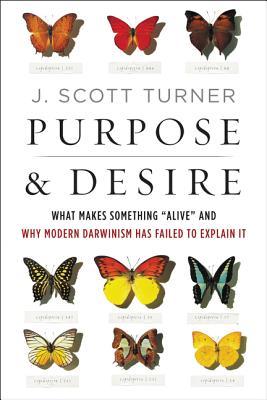
Purpose and Desire
What Makes Something "Alive" and Why Modern Darwinism Has Failed to Explain It
کتاب های مرتبط
- اطلاعات
- نقد و بررسی
- دیدگاه کاربران
نقد و بررسی

July 15, 2017
An exploration of how "there is something presently wrong with how...scientists think about life, its existence, its origins, and its evolution."The discipline of biology is in crisis, writes Turner (Biology/SUNY Coll. of Environmental Science and Forestry; The Tinkerer's Accomplice: How Design Emerges from Life Itself, 2009, etc.) in this ingenious mixture of science and philosophy that points out major defects in Darwinism and then delivers heterodox but provocative solutions. That biology is in crisis may be news to readers, but the author points out that no Darwinian explanation exists for the origin of life or the origin of the cornerstone of modern biology, the gene. Darwinism also has a "hard time explaining what an organism is, or why...living things are actually (not apparently) well-designed." Aware that alarm bells will sound, Turner denies proposing intelligent design but adds that the obstacle is philosophical: biologists must accept that Darwinian evolution is a "phenomenon rife with purpose, intentionality, and striving." This is vitalism--not the mystical 19th-century life force but the obvious ability of living organisms to maintain internal consistency in the face of environmental perturbation. Mostly, the book is a virtuosic, if revisionist, history of evolutionary thought that rehabilitates traditionally scorned figures (Jean-Baptiste Lamarck, Georges Cuvier), reinterprets celebrated 19th-century French physiologist Claude Bernard's ideas on homeostasis, and delivers admiring portraits of the geniuses of modern evolutionary ideas (Lewis Henry Morgan, Ronald Fisher, Sewall Wright, J.B.S. Haldane) without backing down from Turner's insistence that they missed something. Creationists happily trumpet any criticism of Darwinism as proof that it's false, but Turner is only proposing that the strictly materialist approach to studying life could use some help. That organisms strive is not magic but an emergent property. An unsettling but highly thought-provoking book.
COPYRIGHT(2017) Kirkus Reviews, ALL RIGHTS RESERVED.

August 1, 2017
Turner (environmental & biology, State Univ. of New York Coll. of Environmental Science & Forestry; The Tinkerer's Accomplice: How Design Emerges from Life Itself) contends that since the early 20th century, biology has been reduced to materialism and mechanics, chemistry and physics. When we can explain the processes that animate so many nonliving systems, such as weather and computer algorithms, what makes human life unique? Turner asserts that it is agency, striving, and cognition, which he defines as the ability to be aware of one's external environment and alter one's internal environment to achieve a particular state (also known as homeostasis). He calls into question our definition of organism as well, considering systems such as social insects' colonies, algal mats, etc. In examining the development of modern evolutionary theory based on genetic heredity and adaptation, he finds that explanations of the latter lack a coherent definition free from assumptions. While he doesn't advocate for intelligent design, he is unabashedly a neovitalist and argues that modern Darwinism has led us about as far as it can go, leaving questions related to the origin of life unanswered. VERDICT The scientifically minded general reader will find this contrarian viewpoint engaging.--Wade M. Lee, Univ. of Toledo Lib.
Copyright 2017 Library Journal, LLC Used with permission.

























دیدگاه کاربران